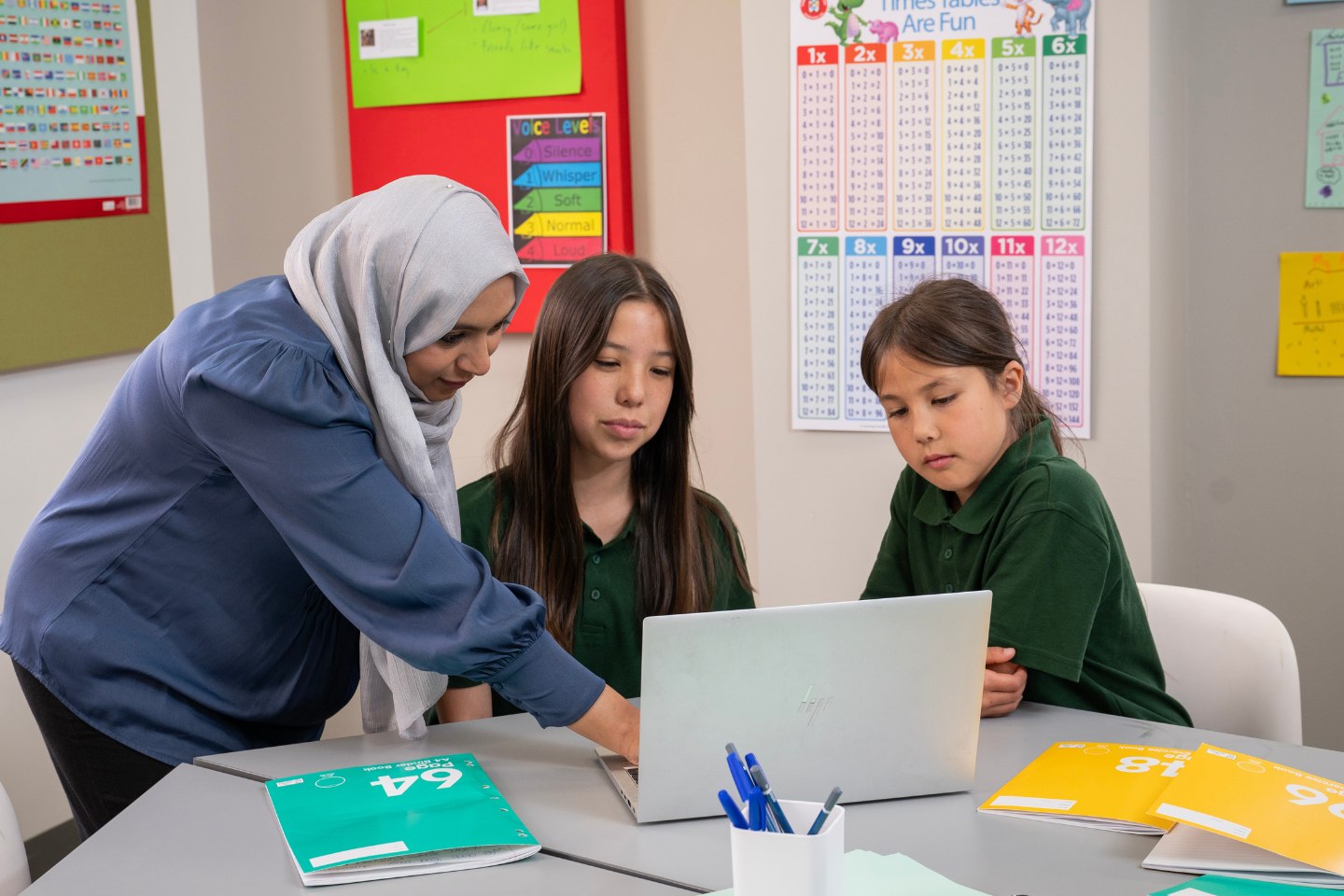
Boys not only perform better in maths, they are also more confident about the subject than girls
Research 18 Feb 2025 7 minute readNew analysis of data from the world's largest student assessment explores differences in how confident and positive Australian boys and girls feel about maths. Sarah Buckley explains.
There is a persistent gender gap in Australian schools. Boys, on average, outperform girls in maths.
We see this in national tests such as NAPLAN, as well as international assessments.
New Australian Council for Educational Research analysis by my colleague Catherine Underwood shows how boys, on average, are also more confident and positive about maths than girls.
What can parents do to help their children feel more confident about this core subject?
Boys outperform girls in maths
An important measure of students’ maths performance is the OECD’s Programme for International Assessment (PISA) test. Run every three years, it measures 15-year-olds’ ability to apply their maths, science and reading knowledge to real-world situations.
In 2022, 53% of Australian male students achieved the PISA national proficiency standard in maths, compared with 48% of female students. The gender gap on average scores was also greater in Australia than across the OECD.
As part of PISA, students also completed a questionnaire about their attitudes to learning. ACER’s new analysis uses data from the questionnaire to look at Australian students’ confidence in maths and how this differs between girls and boys.
Why is confidence so important?
Research suggests students’ confidence has an impact on their academic performance. Researchers can call this “self-efficacy”, or the belief in your ability to successfully perform tasks and solve problems.
Students with high mathematical self-efficacy embrace challenges, use effective problem-solving strategies, and persevere despite difficulties. Those with low self-efficacy may avoid tasks, experience anxiety, and ultimately underperform due to a lack of confidence in their maths abilities.
We can see this in the 2022 PISA results. Girls in the top quarter on the self-rated “self-efficacy index” scored an average of 568 points on the PISA maths performance test, a staggering 147 points higher than the average for girls in the lowest quarter on the index.
For boys, the benefit of confidence was even more pronounced. Those in the top quarter of the index scored 159 points on average higher in maths performance than those in the lowest quarter.
Boys are more confident than girls
The PISA questionnaire asked students how confident they felt about having to do a range of formal and applied maths tasks.
Students showed similar levels of confidence solving formal maths tasks such as equations. But male students, on average, showed they were more confident than female students with applied mathematics tasks such as:
-
finding distances using a map
-
calculating a power consumption rate
-
calculating how much more expensive a computer would be after adding tax
-
calculating how many square metres of tiles are needed to cover a floor.
What about attitude?
The PISA data also shows Australian boys, on average, have more positive attitudes towards maths than girls.
For example, in response to the statement “mathematics is easy for me” only 41% of female students agreed, compared with 55% of male students.
In response to “mathematics is one of my favourite subjects”, 37% of female students agreed, compared with 49% of males.
But in response to “I want to do well in my mathematics class”, 91% of female students agreed, compared to 92% of males.
What can parents do at home to help?
It is troubling that girls, on average, show consistently lower levels of confidence about maths tasks.
This comes on top of other PISA questionnaire results that have shown in general (not just around maths) that a higher proportion of girls than boys say they feel nervous approaching exams.
We want all students to have a positive relationship with maths, where they can appreciate maths skills are important in many aspects of their lives, and they’re willing to have a go to develop them.
Recently, we collaborated with the Victorian Academy of Teaching and Leadership on resources for teachers, students and parents that focus on addressing maths anxiety.
Research shows how we talk about maths at home is important in shaping students’ attitudes and persistence. Parents can help create a positive atmosphere around maths by:
-
dispelling “maths myths”, such as the idea maths ability is fixed and no amount of effort or practise can improve it
-
talking about how making mistakes is a normal part of learning
-
thinking about about how we forgive mistakes in other areas (such as sport, art or science): how can we treat maths mistakes in a similar way?
-
telling your child they have done a good job when they put effort into their maths learning.
Parents can also help their children even if they don’t know the answers to maths problems. It’s perfectly fine to say, “I’m not sure how to do that one but who can we ask for help? Let’s talk to the teacher.”
Modelling a “help-seeking” approach lets children know that it’s OK not to know the answer, the key is to persist and try.![]()
This article by Sarah Buckley, Senior Research Fellow, Education Research, Policy and Development Division, Australian Council for Educational Research, is republished from The Conversation under a Creative Commons license. Read the original article.
Find out more:
Snapshots issue 19: Confidence, gender and mathematics in PISA, by Catherine Underwood, Australian Council for Educational Research.